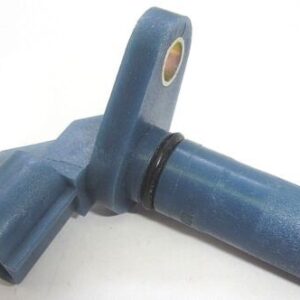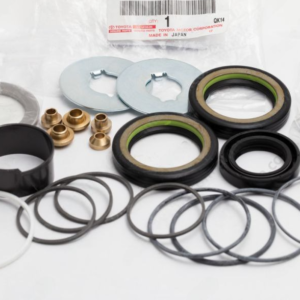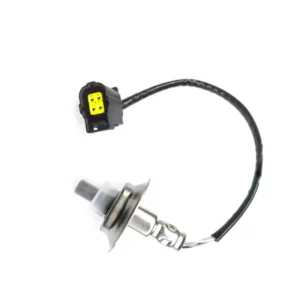**Diving Deep: Understanding the Water Temperature Sensor in Your Vehicle**
In the intricate ecosystem of automotive engineering, where every degree can make a difference, one crucial component silently monitors the heartbeat of your engine—the water temperature sensor. While engines hum with power, it’s the water temperature sensor that ensures they remain within their optimal operating temperature range, safeguarding against overheating and potential damage. Join us as we explore the significance, functionality, and importance of water temperature sensors in the realm of automotive technology.
**Understanding the Essence: What is a Water Temperature Sensor?**
A water temperature sensor, also known as a coolant temperature sensor or engine temperature sensor, is a vital component of an engine’s cooling system. Its primary function is to monitor the temperature of the engine coolant and provide real-time feedback to the engine control unit (ECU) or temperature gauge.
**The Evolution of Cooling Systems**
In the early days of automotive engineering, cooling systems were relatively simple, often relying on air circulation or basic water pumps for temperature regulation. However, as engines became more powerful and performance demands increased, the need for more sophisticated cooling systems grew. Water temperature sensors emerged as a transformative technology, enabling precise monitoring and control of engine temperatures for optimal performance and efficiency.
**The Significance of Temperature Regulation**
In the dynamic world of modern driving, where engines operate under varying conditions, precise temperature regulation is crucial for maintaining engine performance, efficiency, and longevity. Water temperature sensors play a pivotal role in this regard, providing valuable feedback to the ECU, which adjusts fuel delivery, ignition timing, and other parameters based on engine temperature.
**The Silent Observer: How Does a Water Temperature Sensor Work?**
Despite its unassuming appearance, the water temperature sensor employs sophisticated technology to fulfill its role effectively. Typically located near the engine block or cylinder head, the sensor measures the temperature of the coolant as it circulates through the engine.
As the coolant temperature changes, the resistance of the sensor’s internal thermistor or resistor varies accordingly. This change in resistance is converted into an electrical signal, which is sent to the ECU or temperature gauge. Based on this feedback, the ECU adjusts engine parameters to ensure optimal performance and prevent overheating.
**The Unseen Benefits: Advantages of Water Temperature Sensors**
While water temperature sensors may operate quietly behind the scenes, their impact on engine performance and reliability is undeniable. Here are some key advantages:
1. **Prevention of Overheating:** Water temperature sensors help prevent engine overheating by providing early warning signs to the ECU, allowing it to take corrective action before damage occurs.
2. **Optimized Fuel Efficiency:** Proper temperature regulation facilitated by water temperature sensors ensures optimal combustion efficiency, reducing fuel consumption and emissions.
3. **Enhanced Engine Longevity:** By maintaining the engine within its optimal temperature range, water temperature sensors help prolong the lifespan of engine components, reducing the risk of premature wear and failure.
4. **Improved Driveability:** Consistent engine temperature control results in smoother operation, responsive throttle response, and overall improved driving experience.
**Looking Ahead: Innovations in Cooling System Technology**
As automotive technology continues to advance, so too will the field of cooling system technology. Innovations in water temperature sensor design, materials, and integration with other vehicle systems may lead to even more precise and efficient temperature monitoring solutions in the future. Furthermore, as vehicles transition towards electrification and alternative powertrains, water temperature sensors will continue to play a crucial role in optimizing energy usage and enhancing overall vehicle performance.
**In Conclusion: The Guardian of Engine Health**
In the dynamic world of automotive engineering, where every degree matters, water temperature sensors emerge as silent but indispensable guardians of engine health. Their unassuming presence belies their critical importance in ensuring optimal engine performance, efficiency, and longevity. So, the next time you embark on a journey, remember to appreciate the unsung hero working diligently behind the scenes—the water temperature sensor.
Only 3 left in stock (can be backordered)
$18,926.31
**Diving Deep: Understanding the Water Temperature Sensor in Your Vehicle**
In the intricate ecosystem of automotive engineering, where every degree can make a difference, one crucial component silently monitors the heartbeat of your engine—the water temperature sensor. While engines hum with power, it’s the water temperature sensor that ensures they remain within their optimal operating temperature range, safeguarding against overheating and potential damage. Join us as we explore the significance, functionality, and importance of water temperature sensors in the realm of automotive technology.
**Understanding the Essence: What is a Water Temperature Sensor?**
A water temperature sensor, also known as a coolant temperature sensor or engine temperature sensor, is a vital component of an engine’s cooling system. Its primary function is to monitor the temperature of the engine coolant and provide real-time feedback to the engine control unit (ECU) or temperature gauge.
**The Evolution of Cooling Systems**
In the early days of automotive engineering, cooling systems were relatively simple, often relying on air circulation or basic water pumps for temperature regulation. However, as engines became more powerful and performance demands increased, the need for more sophisticated cooling systems grew. Water temperature sensors emerged as a transformative technology, enabling precise monitoring and control of engine temperatures for optimal performance and efficiency.
**The Significance of Temperature Regulation**
In the dynamic world of modern driving, where engines operate under varying conditions, precise temperature regulation is crucial for maintaining engine performance, efficiency, and longevity. Water temperature sensors play a pivotal role in this regard, providing valuable feedback to the ECU, which adjusts fuel delivery, ignition timing, and other parameters based on engine temperature.
**The Silent Observer: How Does a Water Temperature Sensor Work?**
Despite its unassuming appearance, the water temperature sensor employs sophisticated technology to fulfill its role effectively. Typically located near the engine block or cylinder head, the sensor measures the temperature of the coolant as it circulates through the engine.
As the coolant temperature changes, the resistance of the sensor’s internal thermistor or resistor varies accordingly. This change in resistance is converted into an electrical signal, which is sent to the ECU or temperature gauge. Based on this feedback, the ECU adjusts engine parameters to ensure optimal performance and prevent overheating.
**The Unseen Benefits: Advantages of Water Temperature Sensors**
While water temperature sensors may operate quietly behind the scenes, their impact on engine performance and reliability is undeniable. Here are some key advantages:
1. **Prevention of Overheating:** Water temperature sensors help prevent engine overheating by providing early warning signs to the ECU, allowing it to take corrective action before damage occurs.
2. **Optimized Fuel Efficiency:** Proper temperature regulation facilitated by water temperature sensors ensures optimal combustion efficiency, reducing fuel consumption and emissions.
3. **Enhanced Engine Longevity:** By maintaining the engine within its optimal temperature range, water temperature sensors help prolong the lifespan of engine components, reducing the risk of premature wear and failure.
4. **Improved Driveability:** Consistent engine temperature control results in smoother operation, responsive throttle response, and overall improved driving experience.
**Looking Ahead: Innovations in Cooling System Technology**
As automotive technology continues to advance, so too will the field of cooling system technology. Innovations in water temperature sensor design, materials, and integration with other vehicle systems may lead to even more precise and efficient temperature monitoring solutions in the future. Furthermore, as vehicles transition towards electrification and alternative powertrains, water temperature sensors will continue to play a crucial role in optimizing energy usage and enhancing overall vehicle performance.
**In Conclusion: The Guardian of Engine Health**
In the dynamic world of automotive engineering, where every degree matters, water temperature sensors emerge as silent but indispensable guardians of engine health. Their unassuming presence belies their critical importance in ensuring optimal engine performance, efficiency, and longevity. So, the next time you embark on a journey, remember to appreciate the unsung hero working diligently behind the scenes—the water temperature sensor.
| Weight | 0.02 kg |
|---|---|
| Warehouse | Inventory at warehouse 2 |




Get E-mail updates about our latest products and special offers.
Sensors and More is Jamaica’s ultimate online auto parts store. Established in 2020, we specialize in genuine electrical parts for Japanese, Read more…
Reviews
There are no reviews yet.